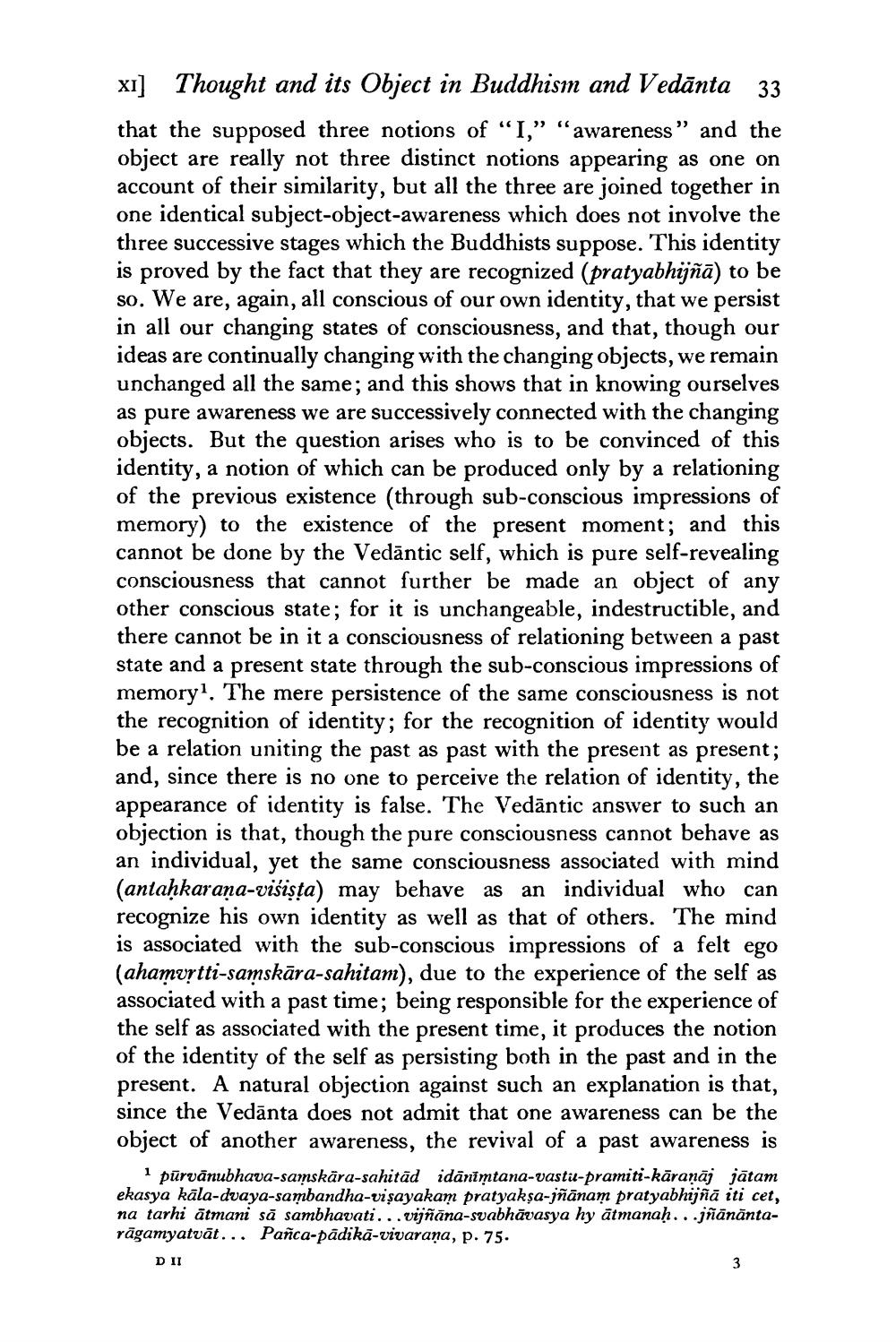________________
xi] Thought and its Object in Buddhism and Vedānta 33 that the supposed three notions of “T," "awareness" and the object are really not three distinct notions appearing as one on account of their similarity, but all the three are joined together in one identical subject-object-awareness which does not involve the three successive stages which the Buddhists suppose. This identity is proved by the fact that they are recognized (pratyabhijñā) to be so. We are, again, all conscious of our own identity, that we persist in all our changing states of consciousness, and that, though our ideas are continually changing with the changing objects, we remain unchanged all the same; and this shows that in knowing ourselves as pure awareness we are successively connected with the changing objects. But the question arises who is to be convinced of this identity, a notion of which can be produced only by a relationing of the previous existence (through sub-conscious impressions of memory) to the existence of the present moment; and this cannot be done by the Vedāntic self, which is pure self-revealing consciousness that cannot further be made an object of any other conscious state; for it is unchangeable, indestructible, and there cannot be in it a consciousness of relationing between a past state and a present state through the sub-conscious impressions of memoryl. The mere persistence of the same consciousness is not the recognition of identity; for the recognition of identity would be a relation uniting the past as past with the present as present; and, since there is no one to perceive the relation of identity, the appearance of identity is false. The Vedāntic answer to such an objection is that, though the pure consciousness cannot behave as an individual, yet the same consciousness associated with mind (antaḥkaraṇa-višista) may behave as an individual who can recognize his own identity as well as that of others. The mind is associated with the sub-conscious impressions of a felt ego (ahamurtti-samskāra-sahitam), due to the experience of the self as associated with a past time; being responsible for the experience of the self as associated with the present time, it produces the notion of the identity of the self as persisting both in the past and in the present. A natural objection against such an explanation is that, since the Vedānta does not admit that one awareness can be the object of another awareness, the revival of a past awareness is
1 pūrvānubhava-samskāra-sahitād idānimtana-vasti-pramiti-kāraṇāj jātam ekasya kāla-dvaya-sambandha-visayakam pratyakşa-jñānam pratyabhijñā iti cet, na tarhi ātmani să sambhavati ... vijñāna-svabhāvasya hy átmanaḥ...jñānāntarāgamyatvāt... Pañca-pădikā-vivarana, p. 75.
DII




